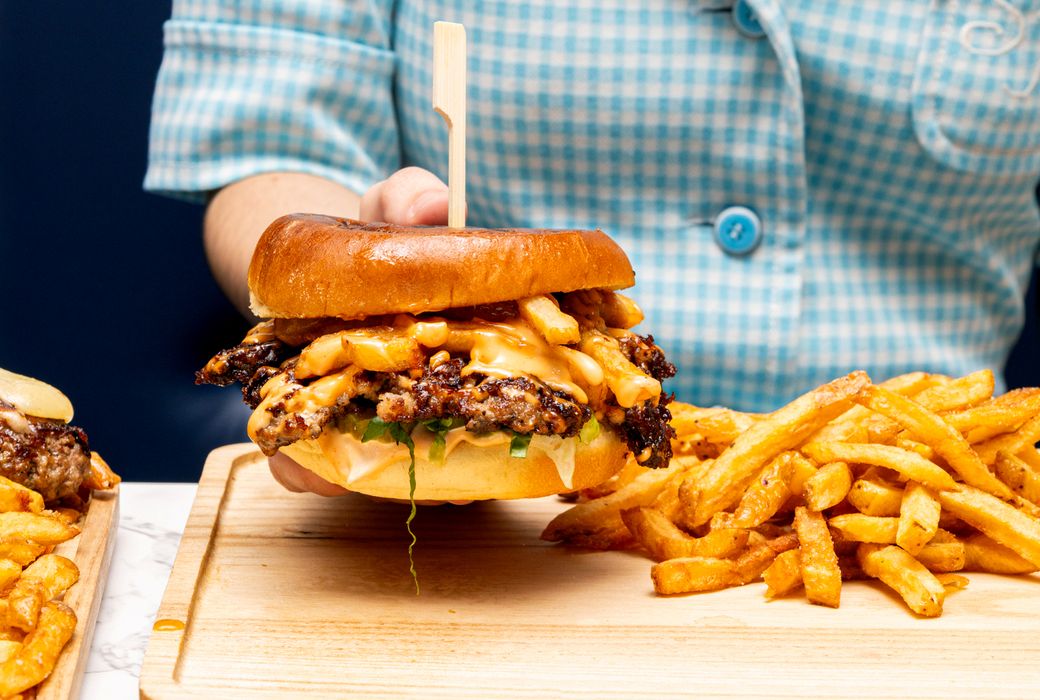Buk Chang Dong Soon Tofu
Buk Chang Dong Soon Tofu has been a go-to fave in Koreatown for its Korean soft tofu stew for over a decade. Named after a neighbourhood in Seoul, this simple and straightforward spot with only nine items on its menu has other locations in the GTA, but this is the original in the city.
Located at the corner of Bloor & Clinton, it’s difficult to miss this joint, with its borderline-tacky green and yellow sign and walls painted bright orange. Garish signage aside, this is a welcoming place to eat with efficient service and affordable prices.
There are six versions of soon tofu to choose from here, with a spice level ranging from “plain” (this amendment replaced “white” after the latter was interpreted as offensive, even though it’s a translation of the Korean term, which is a reflection of what the broth looks like) to “extra spicy.”
“Medium” and “regular spicy” are the most popular requests, although I once ate here with someone who asked for off-the-charts spiciness, and the kitchen complied. I have no idea how he could taste anything else – I enjoy heat and still think “regular spicy” is just the right balance.
On this visit, we get “medium,” and my dining companions are happy with this level.
After orders are placed, the complimentary banchan arrive. These vegetarian side dishes comprise kimchi, bean sprouts, and my two faves, sweet & savoury soy beans and spicy pickled radishes.
The #1 – combination soon tofu ($9.74) – comes with beef, shrimp and mussels, and the soup has real seafood flavour.
It arrives hot and bubbling, the ideal time to crack the egg that arrives with it so that it cooks in the bowl. The silky tofu and slightly spicy broth hit the spot; this is true Korean comfort food.
Each order comes with a side of dolsotbab, which is purple multigrain rice served in a stone bowl. The server dishes out the rice, puts it into another bowl and then pours hot water into the stone bowl, loosening the leftover rice stuck to it.
I’ve always wondered why they do this, and I’m told it’s a post-meal tradition to consume this rice-infused water, as it supposedly helps with digestion (and makes the stone bowl easier to clean).
For those not feeling like soup/stew, there’s the #7 – dolsot bibimbap ($12.39). This staple Korean dish arrives in a super hot stone bowl that creates a perfectly crispy-crunchy crust of rice on its sides. A nice variety of veggies and a fried egg cover the bed of rice.
We mix the whole thing together, adding in a good amount of gochujang (red chili paste), to make a satisfying jumble of slightly spicy tastiness (bibim means “to mix” and bap is “rice” in Korean).
#9 – broiled BBQ + dolsotbab ($12.39) – arrives sizzling. The beef is seasoned well and my dining companion’s eyes practically roll back into his head when he tries it.
This place may not be the most exciting Korean restaurant in town, but when I’m looking for a no-fuss, quick and reliable meal (particularly when the weather gets cooler), BCD is it.
Hector Vasquez








